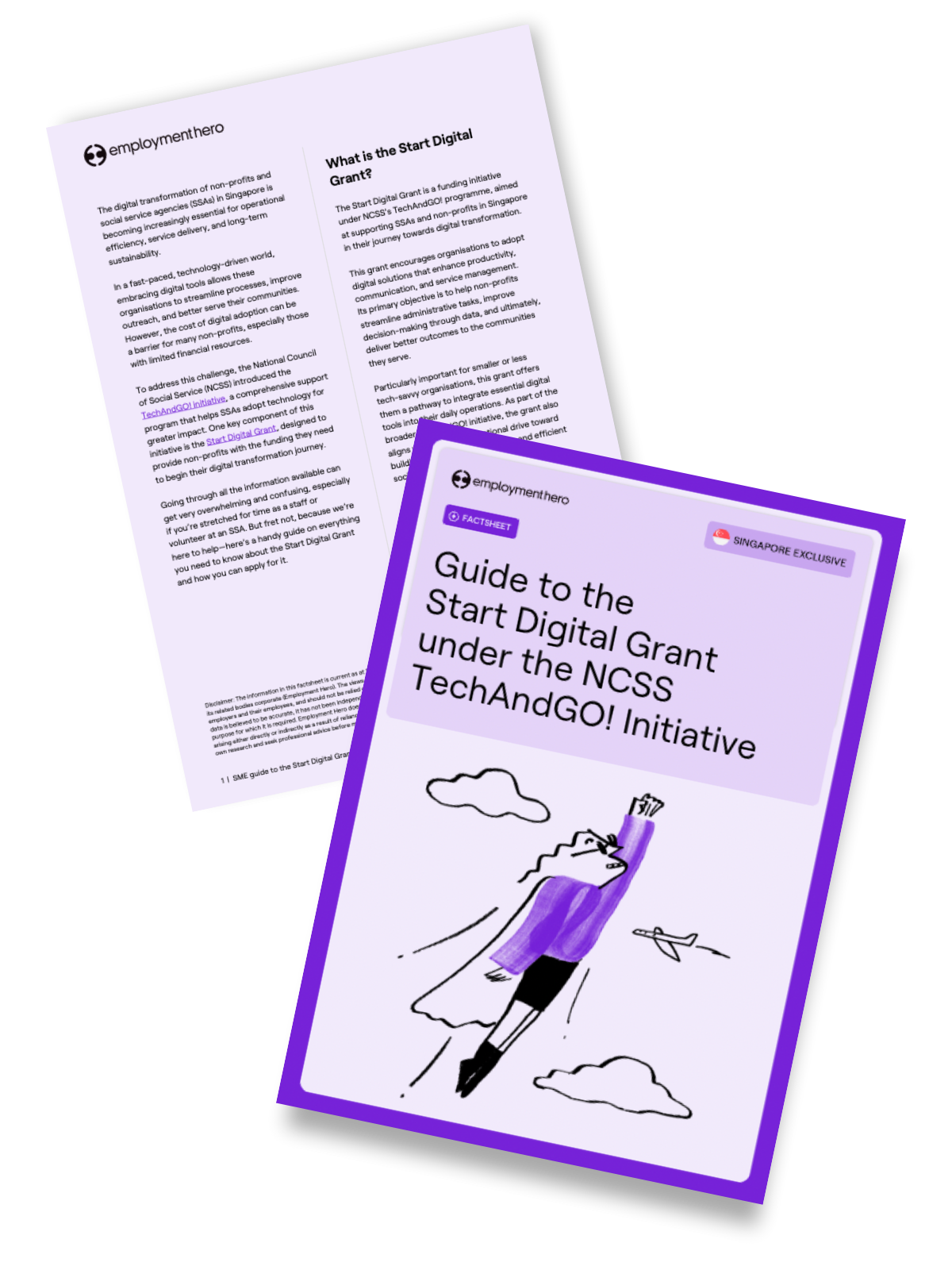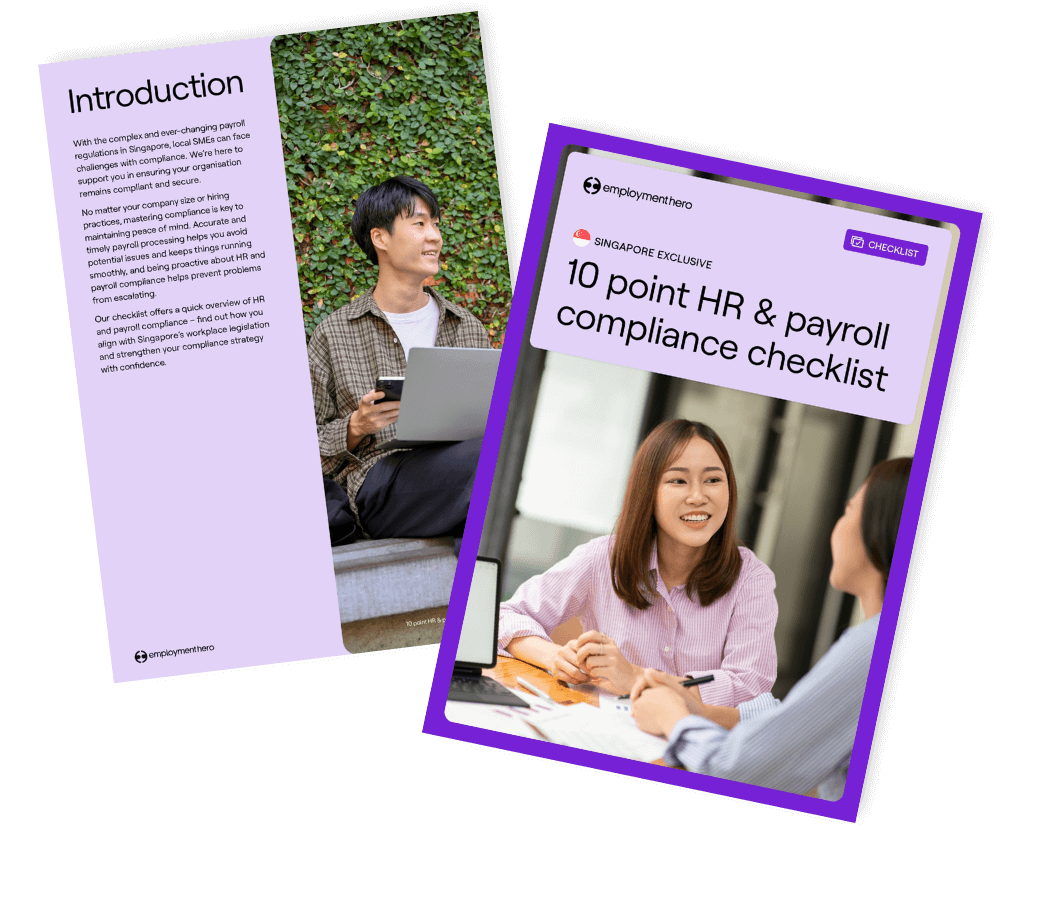The 2024 Wellness At Work Report
Published
The 2024 Wellness At Work Report
How do you feel at work right now? Stressed? Burnt out? Productive?
With so many economic factors at play, from the rising cost of living to the increased GST rates and continual news of layoffs, it’s clear we’re all feeling an unnerving mix of uncertainty and concern. These events influence our lives in a major way, and they can significantly impact one’s sense of well-being, which can seep into every part of life – including work.
You may be in perfect physical health, but do you feel well if you’re in financial distress? You may have a strong sense of occupational fulfilment, but if you don’t feel that you can authentically communicate with others, you might feel lonely.
Did you know that stress-related illnesses cost Singapore’s economy S$3.2 billion annually? Given the long working hours and stressful way of life here, the results may seem unsurprising to many.
We spend, on average, one-third of our lives at work, which can be exhausting if our wellbeing isn’t supported. The good news is, what employers do to support their employees’ wellness can make a big difference. By being informed about how your team is feeling, employers can make employees feel more supported, fight risks to their wellbeing, and improve overall happiness in every aspect of their lives.
We polled more than 1000 employees across Singapore in April 2024, and asked employees about their mental health, how happy they are with their professional relationships, how comfortable they are talking to their manager and colleagues about sensitive topics, how they’re managing the current cost of living crisis, and so much more.
The results are essential reading for any business leader in 2024. Some results might surprise you, but they reveal one main thing that’s crystal clear — more needs to be done to prioritise well-being in the workplace, and it needs to start now.
We want you to know that wellness can be fostered in the workplace and it doesn’t have to break the bank. We hope these insights will help make employment easier and more valuable for you and your team this year.
In the 2024 Wellness at Work report, we cover;
- The wellness progress report: 2022 vs. 2024
- The 2024 wellness headlines
- Mental health and an unstable world
- How are Singaporeans holding up with the cost of living?
- Better together: Camaraderie in the workplace;
- How similar are we with our Malaysian neighbours?
Download the report now.
Key findings
of Singaporeans have felt burnt out in the past 3 months due to work.
of Singaporeans are satisfied with the working relationships they have with their colleagues.
of Singaporeans are satisfied with the working relationship they have with their manager.
of Singaporeans are happy with their overall mental health.
of Singaporeans feel uncomfortable talking to their manager about their mental health and wellness concerns.
of Singaporeans are experiencing stress at least a few times a month or more.
The majority of Singaporeans indicated that financial stress and the cost of living were by far the main sources of stress in the last 3 months.
Fully remote employees have a greater sense of work-life balance and are overall happier with their mental health, compared to hybrid and on-site workers.
Gen Zs and millennials are more prone to burnout — with 68% and 65% respectively feeling burned out because of work in the past 3 months.
The top perk (outside of pay) that employees are looking for is remote and flexible work options.
Insights from Nicole Quiogue Golloso, Director of HR & Corp. Comms (SG & HK) and Regional DEI Lead (APAC), McCann Worldgroup
With our younger workforce struggling particularly hard with stress and burnout, how can you as an employer help?
Be human to your people…
- Treat them with respect, care, and empathy.
- Take time to understand each individual’s capabilities, diverse backgrounds, communication styles, triggers, workloads, etc.
- Offer various flexible work options that would allow employees to balance their personal and professional needs.
- Listen to your employees, even when they aren’t speaking up, and don’t wait for a crisis to take action.
Insights from Jackson Ng, COO and CTO of Azimut Investment Management
What are you doing to support your teams’ financial wellbeing?
Financial literacy should be a core priority, because those who don’t preserve their wealth could lose 100% of their money to those who do. It is particularly important to focus on employees without a strong financial literacy background, as well as the younger employees who are new to the workforce.
Flexible working arrangements, which have gained popularity in recent years, can also significantly reduce an employee’s financial burdens. It’s the seemingly immaterial costs that add up to substantial savings.
Beyond remuneration, rewards and benefits should be designed to directly reduce financial stress. Examples include allowances, insurance coverage, medical packages, and the indirect distribution of government grants to support your people.
Insights from Delbert Ty, Chief Marketing Officer, Coffee Meets Bagel
What perks does your company currently offer and how do they help to improve employee wellbeing?
At Coffee Meets Bagel (CMB), we have very progressive work policies from being completely remote to being asynchronous by default (for example, having almost no meetings), and providing a 4 day work week. This has resulted in the most productive work environment I’ve ever been in. Contrary to what most might think, we do more with less days.
Besides the benefits for the company, employees in CMB love working here. Engagement scores are well above benchmarks. Everyone goes above and beyond proactively when the need arises.
For my team specifically, I make it a point, on top of the abovementioned work practices, to ensure they have slack in their capacity. We work in a very fast-moving, dynamic industry, if I plan to max out everyone’s capacity, they’ll naturally burn out when last-minute surprise tasks emerge, on top of what they need to do.
It’s a cliche, but more leaders need to adopt the mantra: “it’s a marathon, not a sprint.” If you treat your people by making them sprint all the time, don’t be surprised if they quit on you regardless of how much money you throw their way.
Methodology and sample profile
The findings in this report have been determined from a survey organised by Employment Hero.
The 10 minute online quantitative survey was deployed using the QuestionPro platform, and survey responses were collected from Singapore-based respondents which fit the survey respondent criteria below.
To complete the survey, respondents had to be employed in any capacity (full time, part time, casual, fixed term) and not own the business they worked in. Readers should be mindful that this places a skew on the sample distribution with fewer respondents in the 18-24 and 65+ age groups, as they are more likely to either not be employed or be retired.
In total there were 1018 survey participants. 84% are Singaporean citizens and 16% are permanent residents. The survey collected responses between 12 April to 1 May 2024.
Related Resources
-
 Read more: Everything You Need to Know About the Start Digital Grant Under the NCSS TechAndGO! Initiative
Read more: Everything You Need to Know About the Start Digital Grant Under the NCSS TechAndGO! InitiativeEverything You Need to Know About the Start Digital Grant Under the NCSS TechAndGO! Initiative
Discover the Start Digital Grant under NCSS’s TechAndGO! initiative.
-
 Read more: 10 point HR and payroll compliance checklist
Read more: 10 point HR and payroll compliance checklist10 point HR and payroll compliance checklist
Get peace of mind with our 10 point HR and payroll compliance checklist.
-
 Read more: From Hi to Hired: Hire Faster, Hire Smarter.
Read more: From Hi to Hired: Hire Faster, Hire Smarter.From Hi to Hired: Hire Faster, Hire Smarter.
This session will equip you with techniques to streamline hiring, enhance candidate experience.










